Japan’s largest apparel company continues to grow and capture global market share by elevating the in-store experience and driving consumer-focused innovations powered by big data.
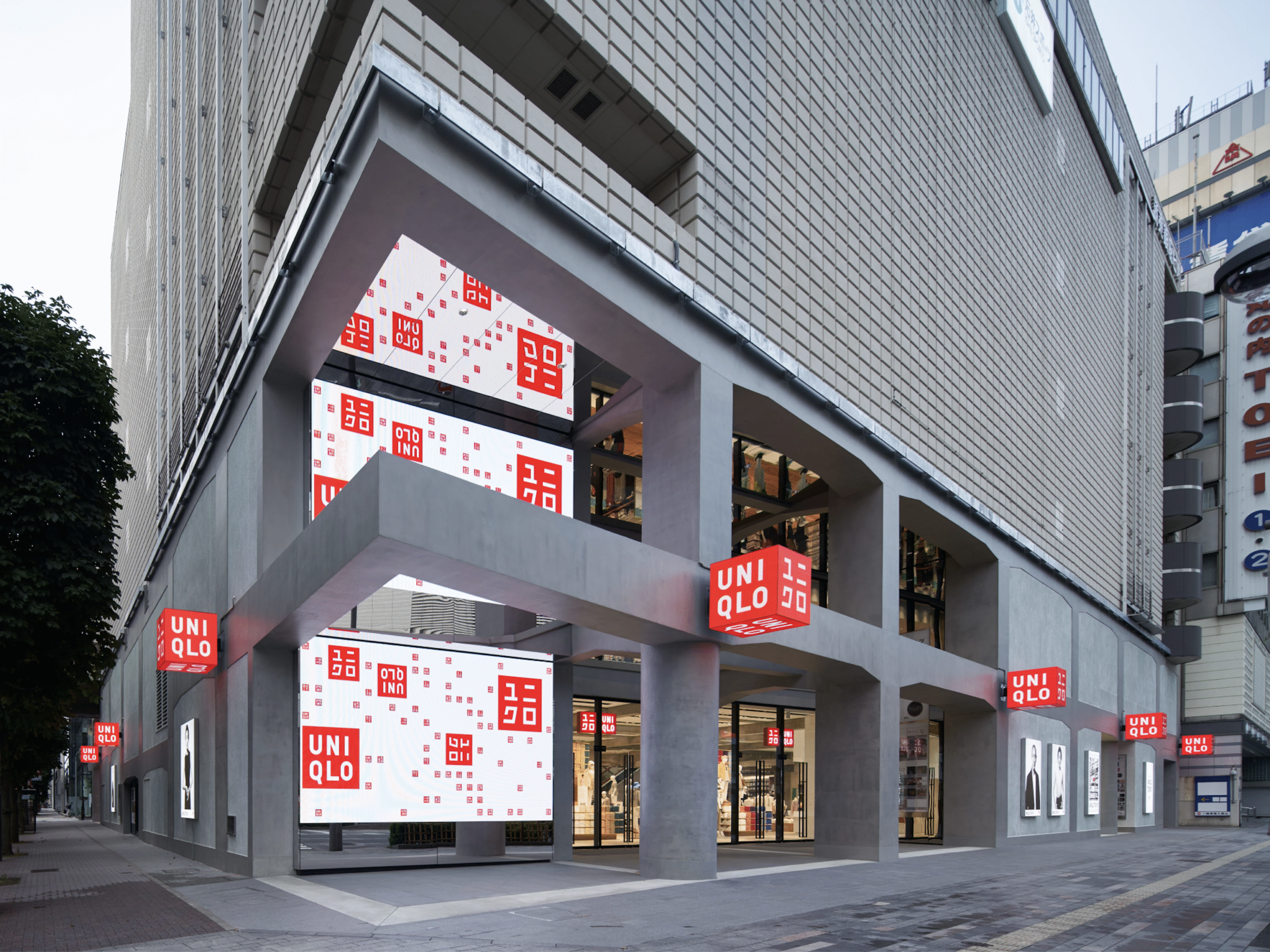
Analysis
Amid pressures from the pandemic, the Japanese fashion giant has continued to grow by providing new touchpoints to merge online and offline retail, and by tailoring services to meet the demand for convenience and engaging experiences.
Despite facing some of the most challenging years for retailers since the pandemic, Japan’s biggest fashion retailer Fast Retailing Co., which owns Uniqlo, GU and Helmut Lang under its umbrella, has posted record YoY growth in annual profit, reaching JPY297.3bn (US$2.02bn) in the 12 months to August 2022 (up from JPY249bn a year earlier).
The boost in profits has been largely driven by Uniqlo, its flagship brand, with strong performances in North America and Europe powered by strong cultural collaborations, as well as revamped logistics and new pricing strategies that were introduced during the pandemic.
Uniqlo has focused on making its merchandise appealing to a wide range of customers by designing essential wear with quality materials, such as its LifeWear line. The brand looks to design and produce clothing that stays in fashion longer than trend-led styles, and has recently ventured into repairing and extending the lifespan of its products to further connect with conscious consumers.
In light of new digital shifts and changing consumer priorities, the company is also reimagining store formats and the in-store experience by strengthening local ties, building human connections, and creating new experiences that foster creativity and community.
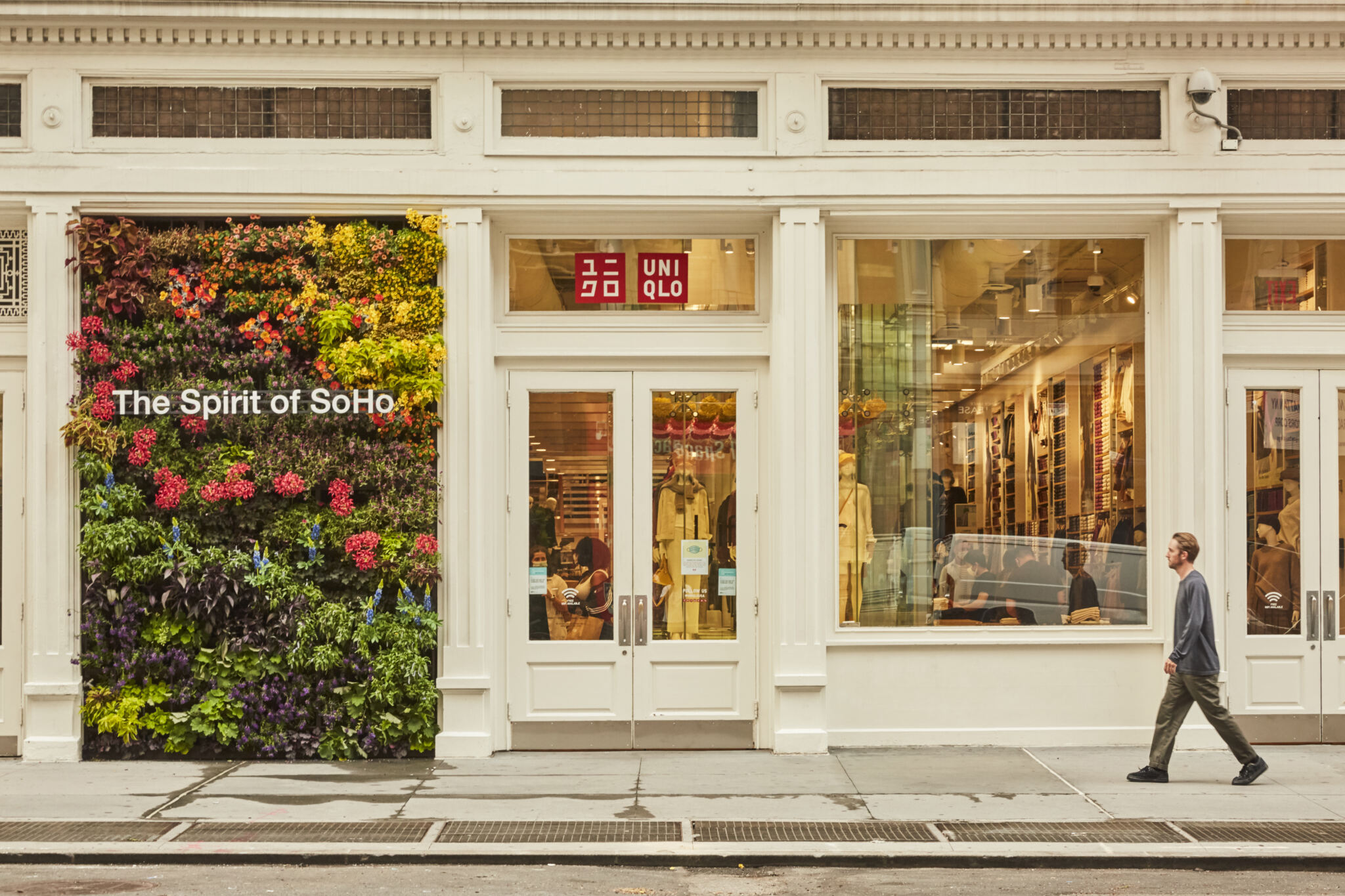
Adapting omnichannel customer journeys
Fast Retailing is pioneering an innovative blend of online and physical retail that offers a streamlined omnichannel experience, tapping into the growing desire for product immediacy and seamless customer services.
Fast Retailing has been looking to drive digital transformation across the company under its Ariake Project since 2017. This has been accelerated since the pandemic, as consumers who are now used to the convenience of online shopping expect a frictionless experience at every part of the retail journey, even as they return to physical stores.
Uniqlo’s e-commerce platform now works to complement its global network of offline stores, with the company having invested in merging physical and e-commerce operations to ensure customers can conveniently shop any time and anywhere. This helps to build omnichannel customers who are more loyal than single-channel ones. By unifying both its in-store and e-commerce inventories, Uniqlo launched its same-day Click & Collect services in 2022, which allows customers to place their orders by 12pm and have their parcel delivered on the same day. This has helped boost click-and-collect shopping to make up over 40% of online purchases for 2022.
Digital tools are utilised to provide customer service and support across both online and offline channels, ensuring a seamless shopping experience. On Uniqlo’s website and in its app, in-depth and comprehensive online guides have been updated to inform consumers about how to measure clothing and body dimensions to ensure a good fit. Chatbots are also available 24/7 to complement Live Chat (9am–6pm daily), in order to shrink waiting times for customer service queries, and encourage conversions. Alteration services online are also offered for selected items, and a complimentary recycled paper measuring tape is also available to help shoppers with measurements in-store before ordering online.
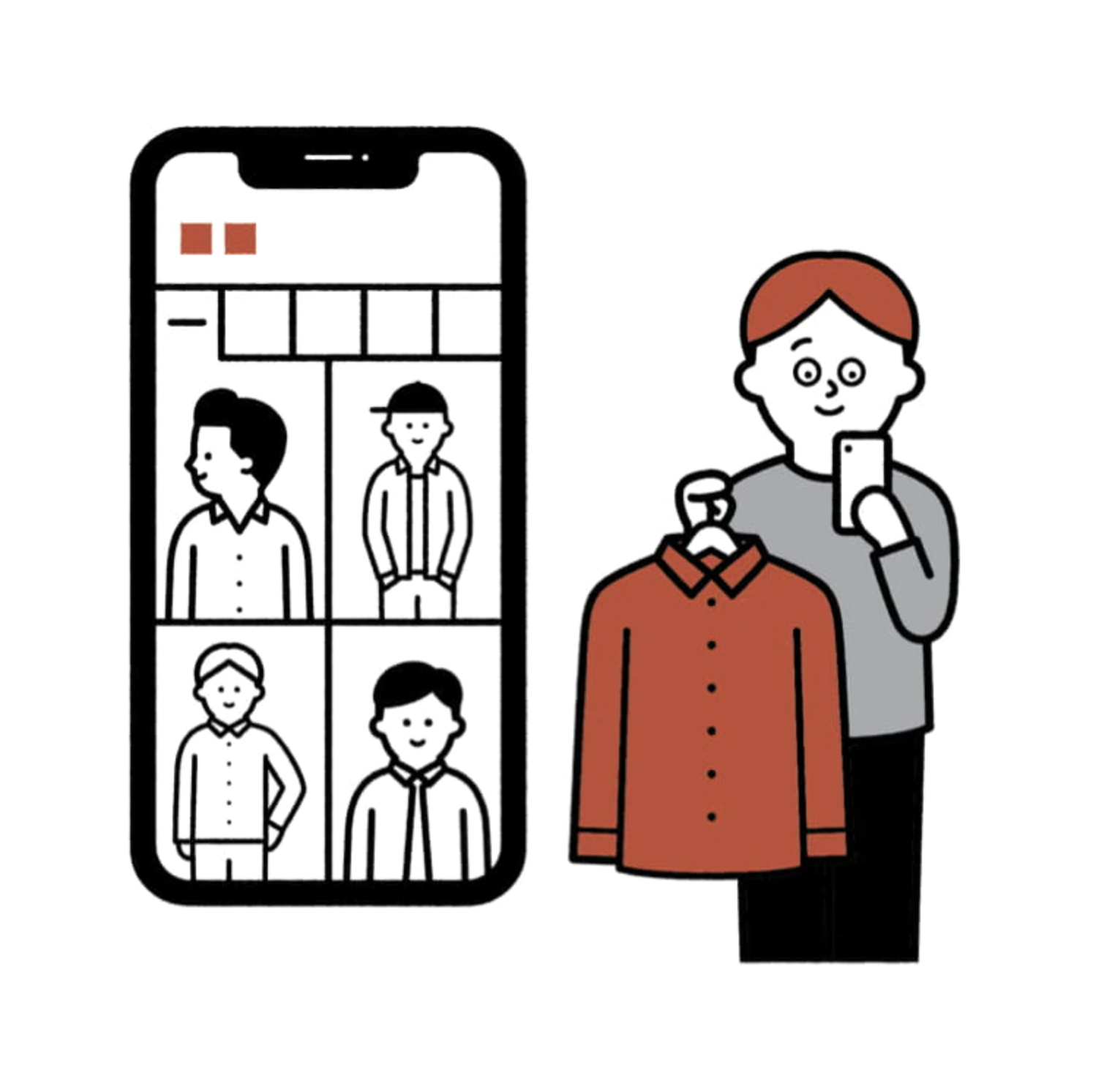
Building precise supply chains
AI-powered algorithms that leverage key consumer data for more precise planning and manufacturing are now helping Fast Retailing make to sell, rather than to stock.
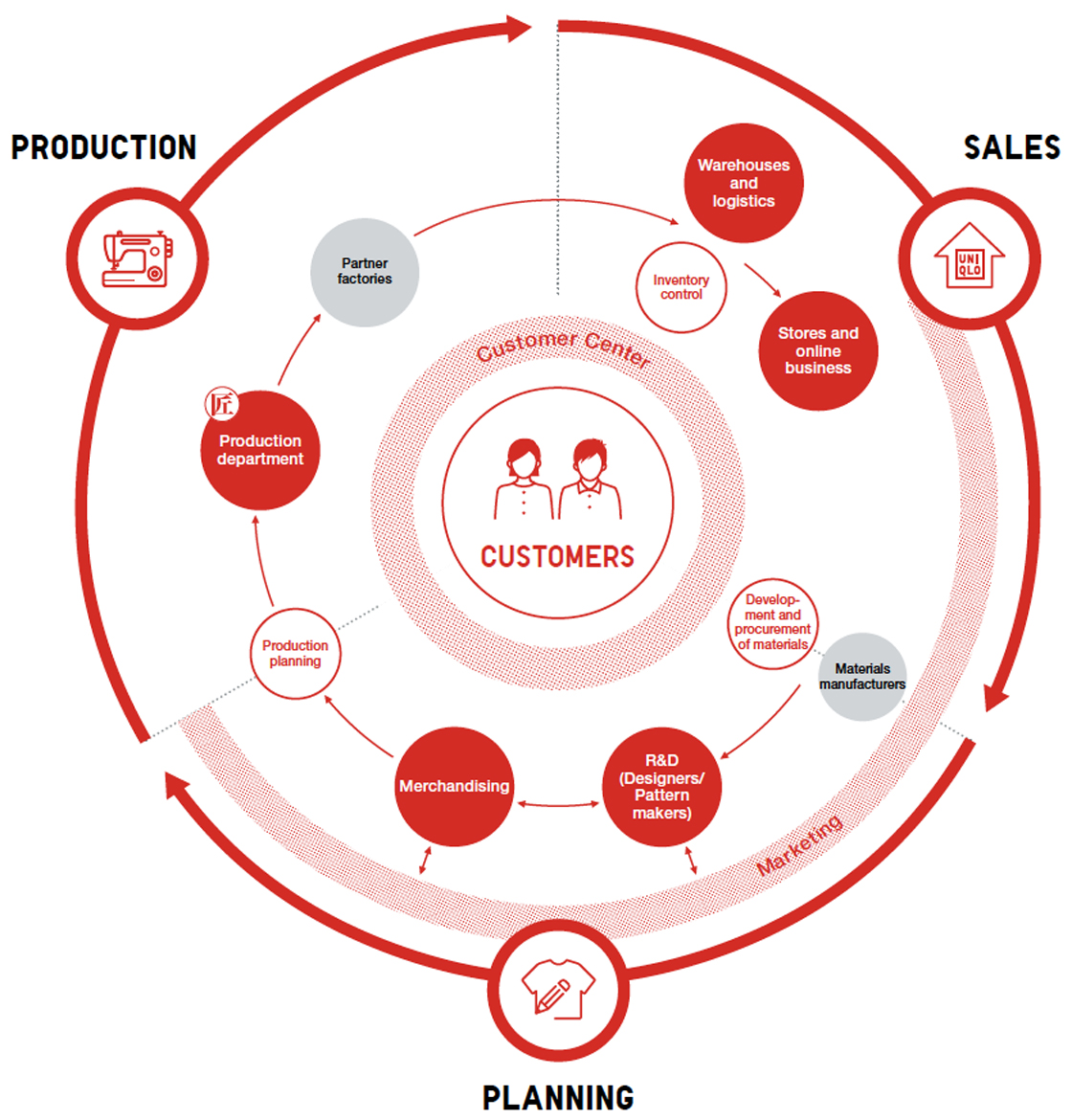
Enhancing customer-centricity
Fast Retailing has embraced a customer-centric approach that focuses on engaging with customers and responding to their needs throughout the product development process.
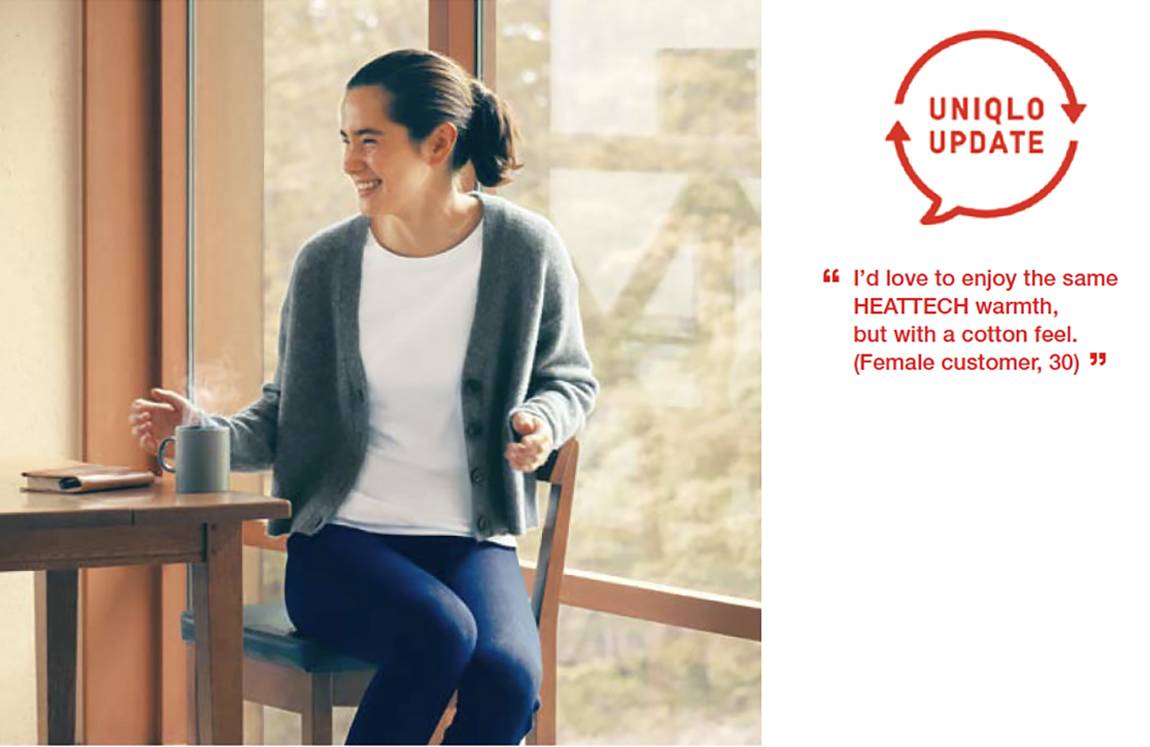
Driving circular commerce
Fast Retailing is spearheading an in-house resale and repair service to encourage shoppers to visit physical outlets and further drive its reputation as an eco-conscious company.
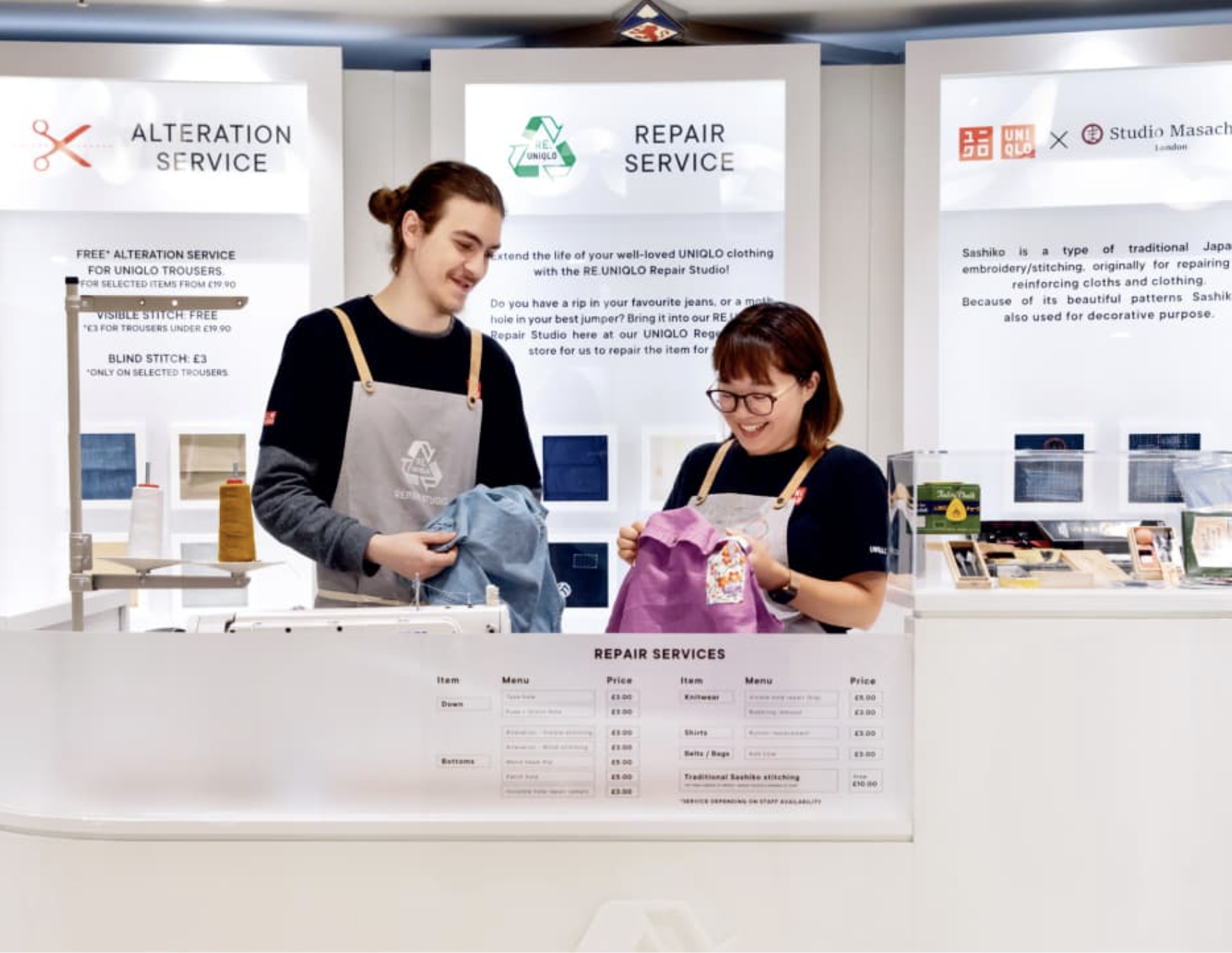
Creating hyperlocal synergies
To engage with consumers and create deeper connections with them, Fast Retailing has highlighted community-centric experiences, and aims to support local businesses, residents and artisans in the areas where it operates.
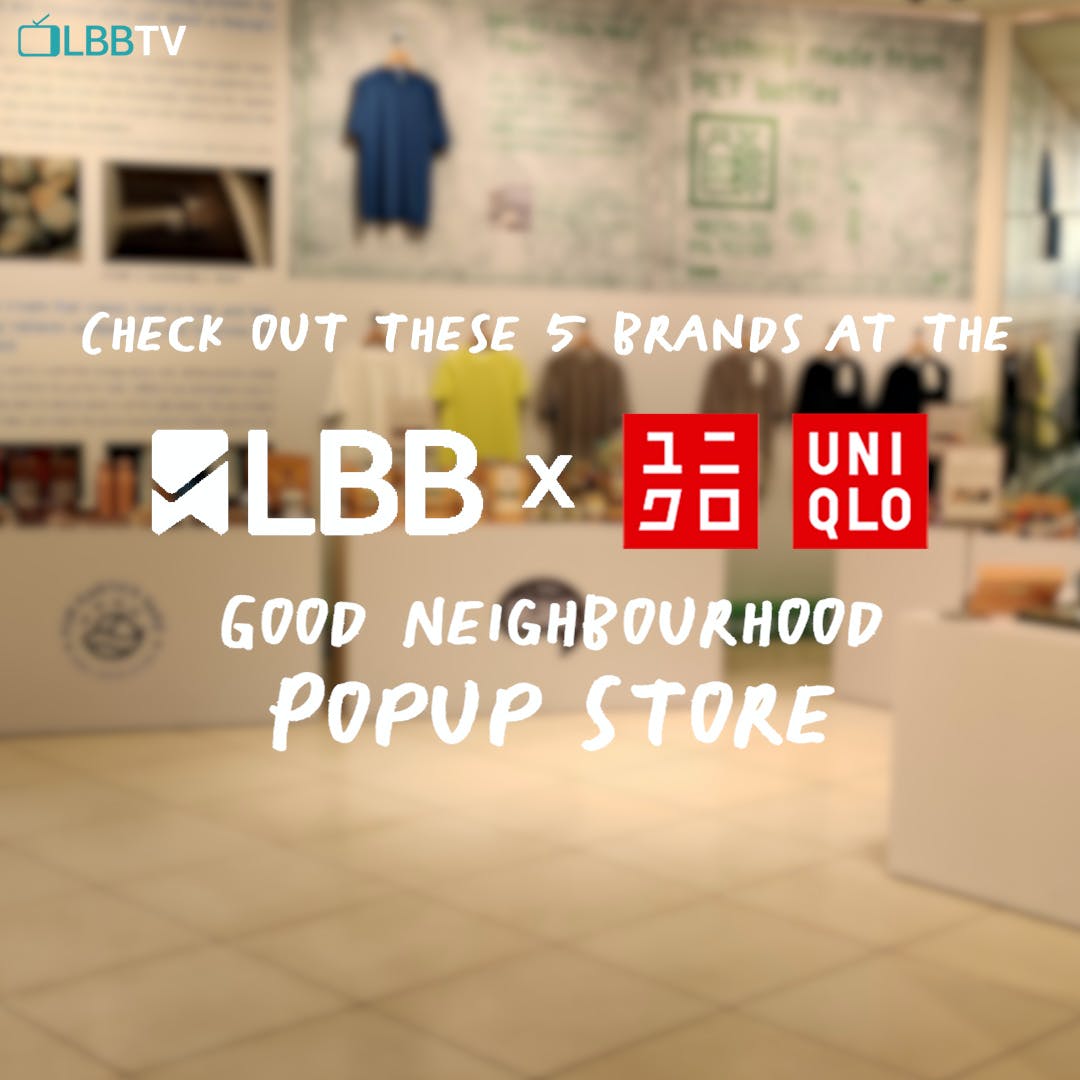
Art-tainment store experiences
Fast Retailing has been making moves to differentiate and elevate its physical outlets, using materials, design, and sensory stimuli to attract footfall post-pandemic.
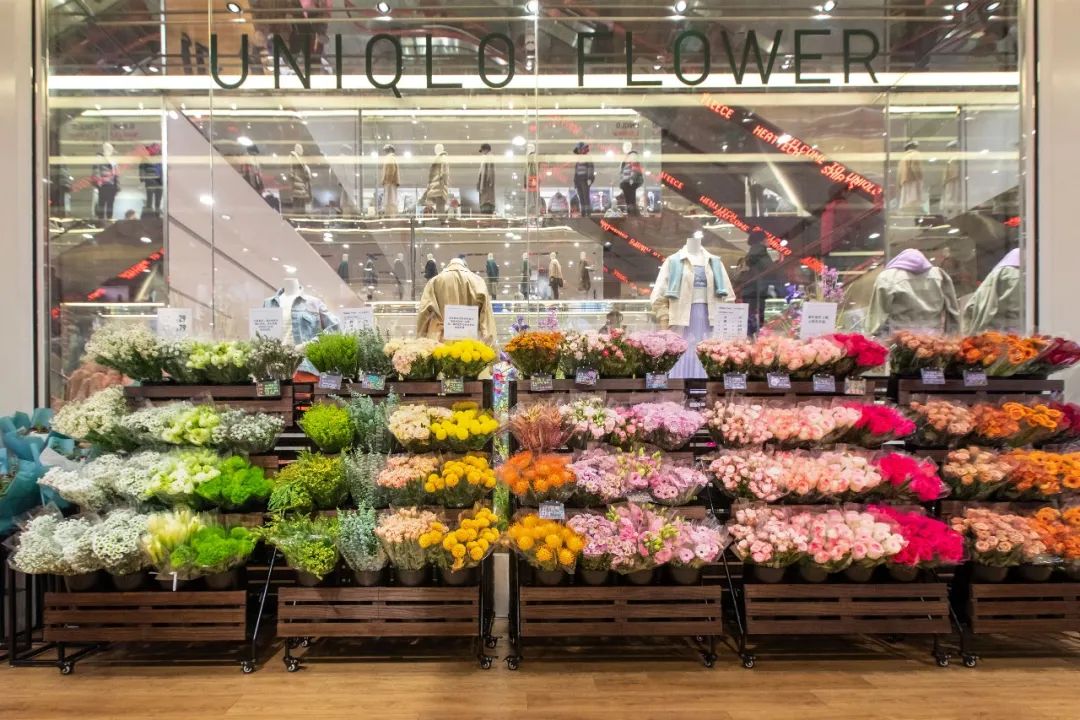
WGSN | Athena Chen
10.19.22 – 10 minutes
